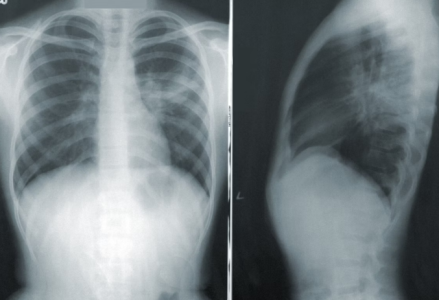Lung disease linked to NYC outbreak now appearing in new areas
- Replies 0
A troubling outbreak is gaining attention across state lines, with health officials racing to contain its spread.
A dangerous illness linked to water systems has now surfaced in multiple states, raising public health concerns.
Though the full scope of the situation is still unfolding, early indicators point to a broader pattern. As investigations continue, more communities may soon be drawn into the response.
Health officials in Michigan confirmed that two residents of Allegria Village in Dearborn died from Legionnaires’ disease between June and July.
The retirement community, which offers continuing care, is cooperating with investigators from Wayne County and the Michigan Department of Health and Human Services.
Officials have not released the names, ages, or other personal details of the deceased individuals. According to the department, both patients tested positive for the infection before their deaths.
Legionnaires’ disease is a severe bacterial pneumonia that causes lung inflammation and is often deadly when untreated.
The illness is contracted through inhalation of aerosolized water droplets contaminated with Legionella bacteria.
Sources of these droplets can include cooling towers, hot tubs, decorative fountains, and plumbing systems in large facilities.
While it is not spread through drinking or swimming, water entering the lungs by accident can transmit the bacteria.
New York City health officials also issued an alert this week after confirming eight cases of Legionnaires’ in Central Harlem.
Also read: Something alarming is moving state to state that is prompting nationwide health alerts
Though no deaths have been reported there yet, the cluster has raised alarm among epidemiologists tracking the disease.
The timing of the outbreaks—during summer heat waves—could be a contributing factor, as Legionella thrives in warm water environments.
Investigations are ongoing in both cities to determine the origins of the contaminated water sources. According to ABC7, the two Michigan residents had recently moved into separate units within the facility.
Avani Sheth, chief medical officer of Wayne County Health, Human, and Veterans Services (HHVS), confirmed the agency is in the early stages of its review.
“Wayne County Health, Human, and Veterans Services was recently notified of cases of Legionella pneumonia (Legionnaires' disease) among residents of Allegria Village,” she stated.
The goal of the investigation is to ensure water safety and prevent further exposure. Legionnaires' disease typically begins with flu-like symptoms including fever, headache, muscle aches, and diarrhea.
As it progresses, it may lead to coughing, shortness of breath, chest pain, and even confusion. While most healthy people exposed to Legionella do not fall ill, the disease is especially dangerous for individuals over 50, smokers, and those with compromised immune systems or chronic lung conditions.
Also read: Experts urge caution as tick-borne diseases reach alarming levels
Timely antibiotic treatment significantly improves outcomes, but once hospitalized, the fatality rate can reach one in four patients.
The CDC has tracked a steady increase in Legionnaires’ cases since the early 2000s, with 9,933 confirmed cases reported in 2018 alone.
Between 2000 and 2019, 82,352 cases were documented across 52 US jurisdictions through the National Notifiable Diseases Surveillance System.
However, underreporting and inconsistent state-level data collection mean the actual number may be higher. Currently, the CDC estimates that about 1 in 10 people infected will die.
Legionella bacteria colonize warm, slow-moving water systems by forming biofilms on pipe surfaces and fixtures.
From there, they aerosolize and spread through the air when water is turned on in showers, sinks, or hot tubs.
Residential and healthcare facilities with aging infrastructure are particularly vulnerable to these outbreaks.
Earlier this year, a similar incident in Vermont led to multiple hospitalizations and one death, all traced to a contaminated water system in a senior care home.
Read next: Why people "Unknowingly" die of cancer: insights from a pathologist

Are officials doing enough to protect vulnerable residents in care facilities from preventable waterborne outbreaks? Share your thoughts in the comments and let us know what precautions you think should be mandatory.
A dangerous illness linked to water systems has now surfaced in multiple states, raising public health concerns.
Though the full scope of the situation is still unfolding, early indicators point to a broader pattern. As investigations continue, more communities may soon be drawn into the response.
Health officials in Michigan confirmed that two residents of Allegria Village in Dearborn died from Legionnaires’ disease between June and July.
The retirement community, which offers continuing care, is cooperating with investigators from Wayne County and the Michigan Department of Health and Human Services.
Officials have not released the names, ages, or other personal details of the deceased individuals. According to the department, both patients tested positive for the infection before their deaths.
Legionnaires’ disease is a severe bacterial pneumonia that causes lung inflammation and is often deadly when untreated.
The illness is contracted through inhalation of aerosolized water droplets contaminated with Legionella bacteria.
Sources of these droplets can include cooling towers, hot tubs, decorative fountains, and plumbing systems in large facilities.
While it is not spread through drinking or swimming, water entering the lungs by accident can transmit the bacteria.
New York City health officials also issued an alert this week after confirming eight cases of Legionnaires’ in Central Harlem.
Also read: Something alarming is moving state to state that is prompting nationwide health alerts
Though no deaths have been reported there yet, the cluster has raised alarm among epidemiologists tracking the disease.
The timing of the outbreaks—during summer heat waves—could be a contributing factor, as Legionella thrives in warm water environments.
Investigations are ongoing in both cities to determine the origins of the contaminated water sources. According to ABC7, the two Michigan residents had recently moved into separate units within the facility.
Avani Sheth, chief medical officer of Wayne County Health, Human, and Veterans Services (HHVS), confirmed the agency is in the early stages of its review.
“Wayne County Health, Human, and Veterans Services was recently notified of cases of Legionella pneumonia (Legionnaires' disease) among residents of Allegria Village,” she stated.
The goal of the investigation is to ensure water safety and prevent further exposure. Legionnaires' disease typically begins with flu-like symptoms including fever, headache, muscle aches, and diarrhea.
As it progresses, it may lead to coughing, shortness of breath, chest pain, and even confusion. While most healthy people exposed to Legionella do not fall ill, the disease is especially dangerous for individuals over 50, smokers, and those with compromised immune systems or chronic lung conditions.
Also read: Experts urge caution as tick-borne diseases reach alarming levels
Timely antibiotic treatment significantly improves outcomes, but once hospitalized, the fatality rate can reach one in four patients.
The CDC has tracked a steady increase in Legionnaires’ cases since the early 2000s, with 9,933 confirmed cases reported in 2018 alone.
Between 2000 and 2019, 82,352 cases were documented across 52 US jurisdictions through the National Notifiable Diseases Surveillance System.
However, underreporting and inconsistent state-level data collection mean the actual number may be higher. Currently, the CDC estimates that about 1 in 10 people infected will die.
Legionella bacteria colonize warm, slow-moving water systems by forming biofilms on pipe surfaces and fixtures.
From there, they aerosolize and spread through the air when water is turned on in showers, sinks, or hot tubs.
Residential and healthcare facilities with aging infrastructure are particularly vulnerable to these outbreaks.
Earlier this year, a similar incident in Vermont led to multiple hospitalizations and one death, all traced to a contaminated water system in a senior care home.
Read next: Why people "Unknowingly" die of cancer: insights from a pathologist
Key Takeaways
- Legionnaires’ disease is a severe bacterial pneumonia that spreads through inhaling aerosolized water droplets.
- In Michigan, two residents of a retirement community died after contracting the disease this summer.
- New York City is also investigating a cluster of cases in Central Harlem with no fatalities confirmed yet.
- The CDC has reported an upward trend in Legionnaires’ infections since the early 2000s, driven in part by aging infrastructure.







